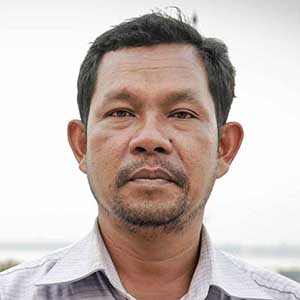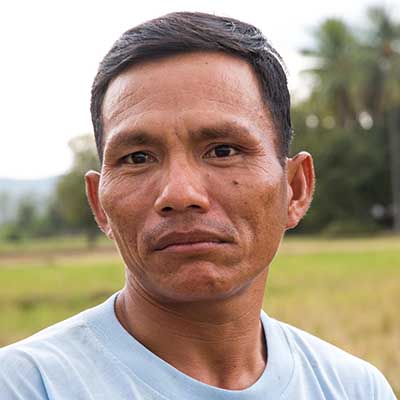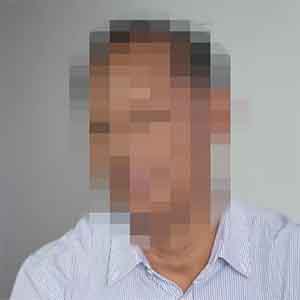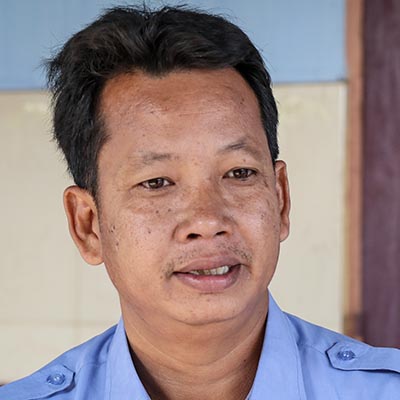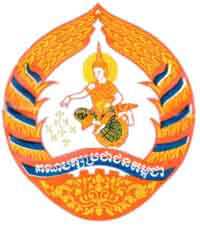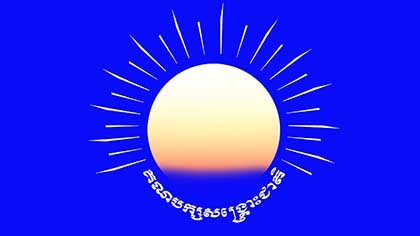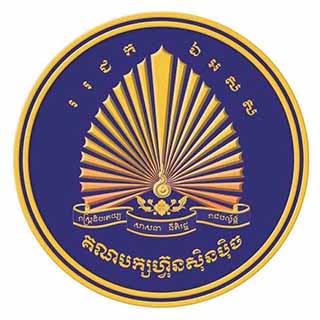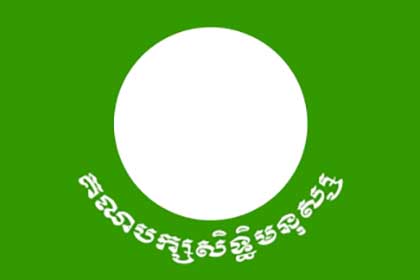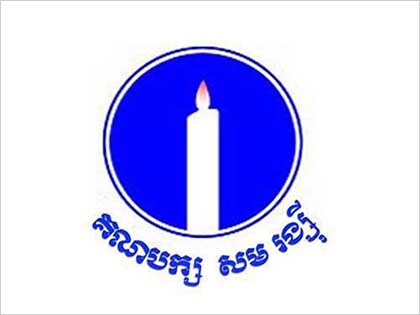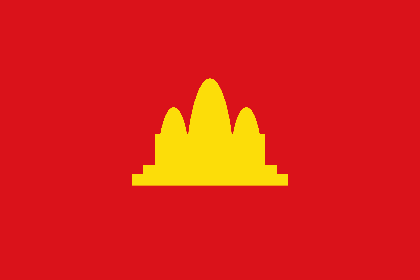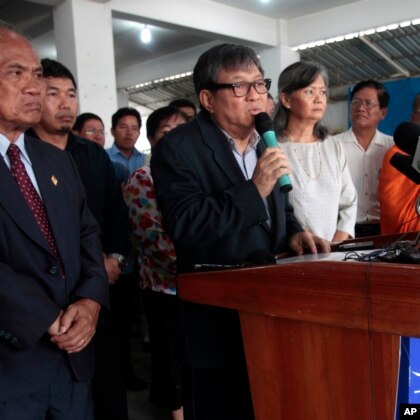
Cambodia National Rescue Party (CNRP) lawmakers, Son Chhay, center left, Mu Sochua, center right, together lead a press conference at the party headquarters, in Phnom Penh, Cambodia, Tuesday, Sept. 12, 2017. CNRP on Tuesday held a press conference, saying they remain determined to participant the upcoming general election in July 2018. Prime Minister Hun Sen, on Monday, Sept. 11, threatens to dissolve the main opposition party if it gets involved in legal proceedings against its chief, who was charged with treason last week. (Heng Sinith | AP)
Politicians’ Voices
A Life Spent Striving for National Unity
Son Chhay has been a fixture in Cambodian politics since 1993. A member of the now-dissolved opposition Cambodia National Rescue Party (CNRP), he opted to remain when other party leaders fled the country.
Phnom Penh, Cambodia Son Chhay is still smiling.
Despite the political trials he and his colleagues in the banned Cambodia National Rescue Party (CNRP) have faced, the veteran politician remains upbeat about democracy in Cambodia as he speaks with VOA Khmer in an exclusive interview ahead of July’s general election.
The CNRP, a party in which he formed a central pillar since its founding in 2012 in a merger between the Sam Rainsy Party (SRP) and Human Rights Party, was dissolved in a controversial court decision in November. More than 100 of its officials were banned from politics for five years and most of its leadership have fled the country, fearing reprisals.
| By the numbers | National |
|---|
But amid the chaos, threats and departures of his colleagues, Chhay has stayed put.
Chhay has been a fixture of Cambodian politics since 1993, standing for several parties, including the Buddhist Liberal Democratic Party (BDLP) and the SRP. A diligent investigator, he could often be found in his parliamentary office meeting sources or poring over documents. Since the CNRP won a large minority in the 2013 election, Chhay served as the party’s chief whip.
“I think parliament serves the nation and generally represents the citizens, so leaders have to be accountable for citizens through parliament,” he says. “We often heard it said in English that there is no peace without justice. An unjust society cannot achieve peace. We need mechanisms to ensure justice is free for every citizen.”
No Regrets
Chhay was one of 118 CNRP officials who were banned from politics until 2022, when Dith Munty, the country’s top judge and a senior ruling Cambodian People’s Party (CPP) member, ruled on November 16 that the party should be dissolved for alleged collusion with the United States to topple Prime Minister Hun Sen.
The party’s leader, Kem Sokha, was jailed on treason charges, which have roundly been denied by the opposition. The party’s dissolution was seen as the “death of democracy” in Cambodia by some, whereas the government claimed it was only following legal procedure.
Chhay said the loss of his job and his decision to stay in Cambodia when many of his colleagues fled has given him a lot of time for reflection.
“I have no regrets about losing my position since, first of all, this gives me time to relax, because I had worked for so long over five parliamentary terms,” he said. “I can now travel anywhere with no concern about my work or affairs of the parliamentary commission.”
“For 20 years I did my job with sincerity and honor,” he added.
Chhay now spends hours browsing through archives of documents he has collected over some 25 years. He said he wants to write a memoir and has been reading biographies of world leaders, including Chinese reformist leader Deng Xiaoping.
“He was patient and mild,” Chhay says of Deng. “He spoke little, was neither talkative nor boastful. He seldom discussed his thoughts or ideas, but held on to them until he was able to implement them.”
“I like that he thought a lot and spoke less. But he’s not my role model; I just like that idea,” he added.
Path to Politics
Chhay was born in Siem Reap province in Cambodia’s north, a stone’s throw from the world-famous Angkor Archaeological Park. His father worked at a state-owned transportation company while his mother stayed at home to look after Chhay and his 11 siblings.
“My biggest driver was the Khmer Rouge regime. I had a feeling that Cambodia was always ruled by irresponsible leaders, causing difficulties for the people. From one regime to another, leaders only cared about their own power and image,”
After finishing school in the 1960s, Chhay worked for a while in radio, learning the ins and outs of political debate during the reign of the late King Norodom Sihanouk. This period, he says, gave him a taste for political life, but it was not until the Khmer Rouge regime fell in 1979 and after the death of his father and two siblings that he decided he wanted to enter politics full time.
“My biggest driver was the Khmer Rouge regime. I had a feeling that Cambodia was always ruled by irresponsible leaders, causing difficulties for the people. From one regime to another, leaders only cared about their own power and image,” he said.
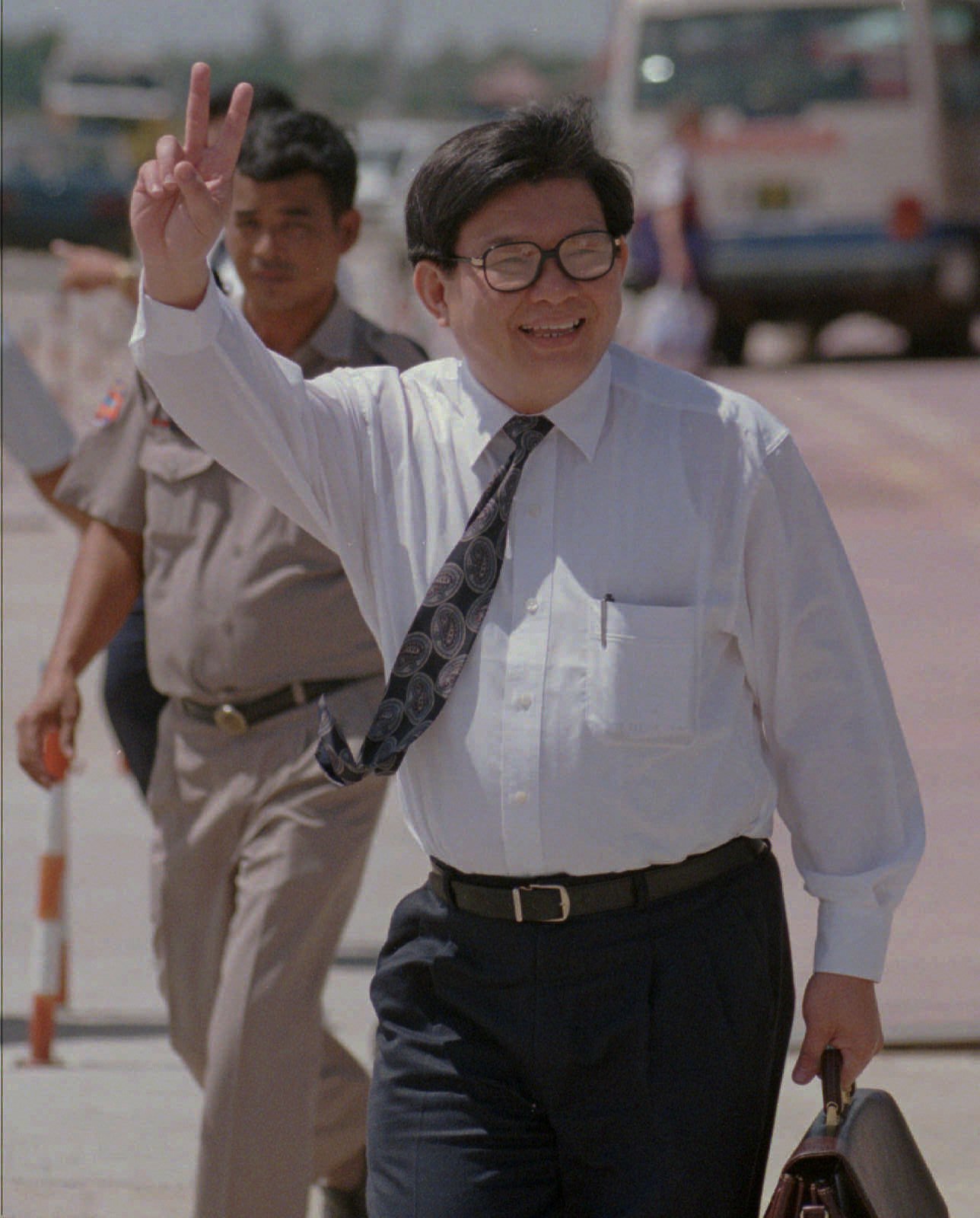
Son Chhay, the exiled Parliamentary Member who belongs to the Buddhist Liberal Democratic Party, flashes a victory sign upon his arrival at Phnom Penh airport on Friday Oct. 17, 1997. Son Chhay fled Cambodia after factional fighting erupted in Phnnom Penh. (Ou Neakiry | AP)
Throughout the 1980s he spent time as a refugee in Australia, where he learned and later taught mathematics before returning to Cambodia in 1991 as a teacher trainer. Soon after his return, in 1993 he joined the BDLP with the U.N.-sponsored election just around the corner. He was elected as an MP in Siem Reap province.
Sam Rainsy, who would go on to lead the CNRP, was expelled from parliament for challenging alleged government misconduct while serving as finance minister. Chhay joined a small group of parliamentarians, including another future CNRP leader, Kem Sokha, who stayed behind to voice their opposition to the move, according to U.N. envoy Benny Widyono’s account in his memoir, “Dancing in Shadows.”
The Peacemaker
In July 1997, forces loyal to Prime Minister Hun Sen staged a coup against Prince Norodom Ranariddh, then serving as co-prime minister. Chhay, then a BLDP lawmaker, attempted to broker peace between the warring factions.
“I wanted unity and I was so young and willing to take risks, scared of nothing, for the sake of unification and ending the conflict,” he says. “I believed that, if we remained in exile and gathered forces at the border for resistance, our country would be devastated and there would be nothing left to destroy.”
Chhay arrived in Phnom Penh from Bangkok and presented Hun Sen with a peace roadmap. He managed to gain an audience with King Sihanouk, where he pitched his vision for national reconciliation. “His majesty was crying during our talk. It was just the two of us… . This was the most memorable event in my life,” Chhay says.
Several months later, a breakthrough in the standoff came, paving the way for elections in 1998. Chhay soon joined Rainsy’s eponymous party.
While many of his colleagues believe the only way forward in Cambodia is to bring international pressure on the Hun Sen regime, Chhay said he thinks a combination of local campaigning and lobbying foreign governments can work.
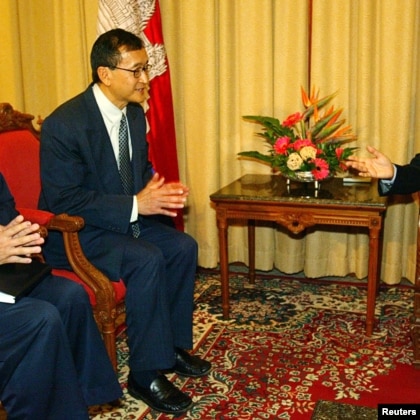
Cambodian opposition leader Sam Rainsy (C) and Son Chhay, a member of Sam Rainsy's party, talk to the President of the National Assembly Prince Norodom Ranariddh (R) at the assembly building in Phnom Penh February 15, 2006. (Chor Sokunthea | Reuters)
Spying Accusations
In 2012, in a rambling five-hour address to parliament, Prime Minister Hun Sen accused Chhay of being a spy and working behind the scenes to cause instability in Cambodia over the Vietnam border demarcation issue, a sore point.
Chhay said it was “painful” to be accused of espionage, adding that though he may be able to broker talks with Hun Sen to this day, he fears being recorded and later exposed in pro-government media outlets.
“Samdech Hun Sen is a clever and pragmatic person, and he does what he says,” says Chhay, using an honorific title for the prime minister. “Normally, like I said, we also have to understand where he’s coming from, as we cannot just call him bad all the time. You have to be fair with him, too.”
Clapping With One Hand
After the 2013 election, which was widely seen as not free and fair by the independent electoral watchdog COMFREL (PDF) and Human Rights Watch, the CNRP took to the streets in the tens of thousands to protest the results. Chhay said he was not a big supporter of the decision to stage mass protests, gatherings which lie at the heart of ruling party allegations of a conspiracy to overthrow Hun Sen.
A failure to build trust between the leaders of the two parties contributed to the collapse of a short-lived bipartisan political détente and a later deterioration in relations that led to the banning of the CNRP, he said.
“A peaceful transfer of power needs time, mutual trust and assurances,” he added.
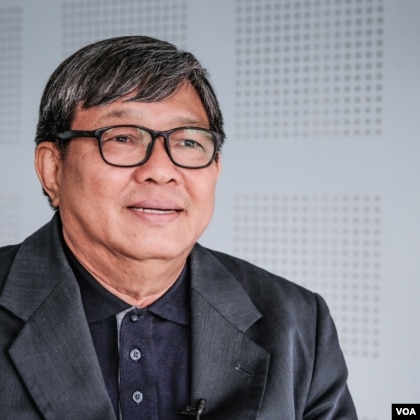
“A peaceful transfer of power needs time, mutual trust and assurances.”
No Rebel
Chhay saw himself as a “principled” voice of opposition within the CNRP. He admires the sacrifices both Sokha and Rainsy have made for the country.
“In some circumstances, we had disagreements that made me not follow their orders. As a matter of fact, in politics bosses don’t like you much if you often challenge their orders,” he says. “But for me, I have my own principles at work. I am not a sycophant and have to tell my superiors when they are doing wrong.”
But now Chhay, along with his former leaders and colleagues, have been labeled “traitors” and “urban rebels” by a pliant pro-government media.
He does not think such language is helpful in the quest for national unity, complaining that he has lost touch with friends who fear being tarred with the same brush.
“I do hope the Royal Government will not continue to label us like this,” he said.
